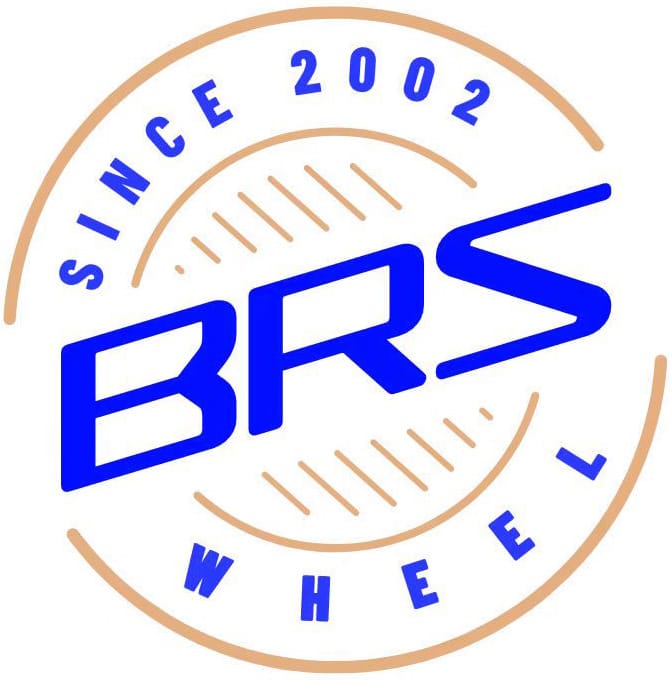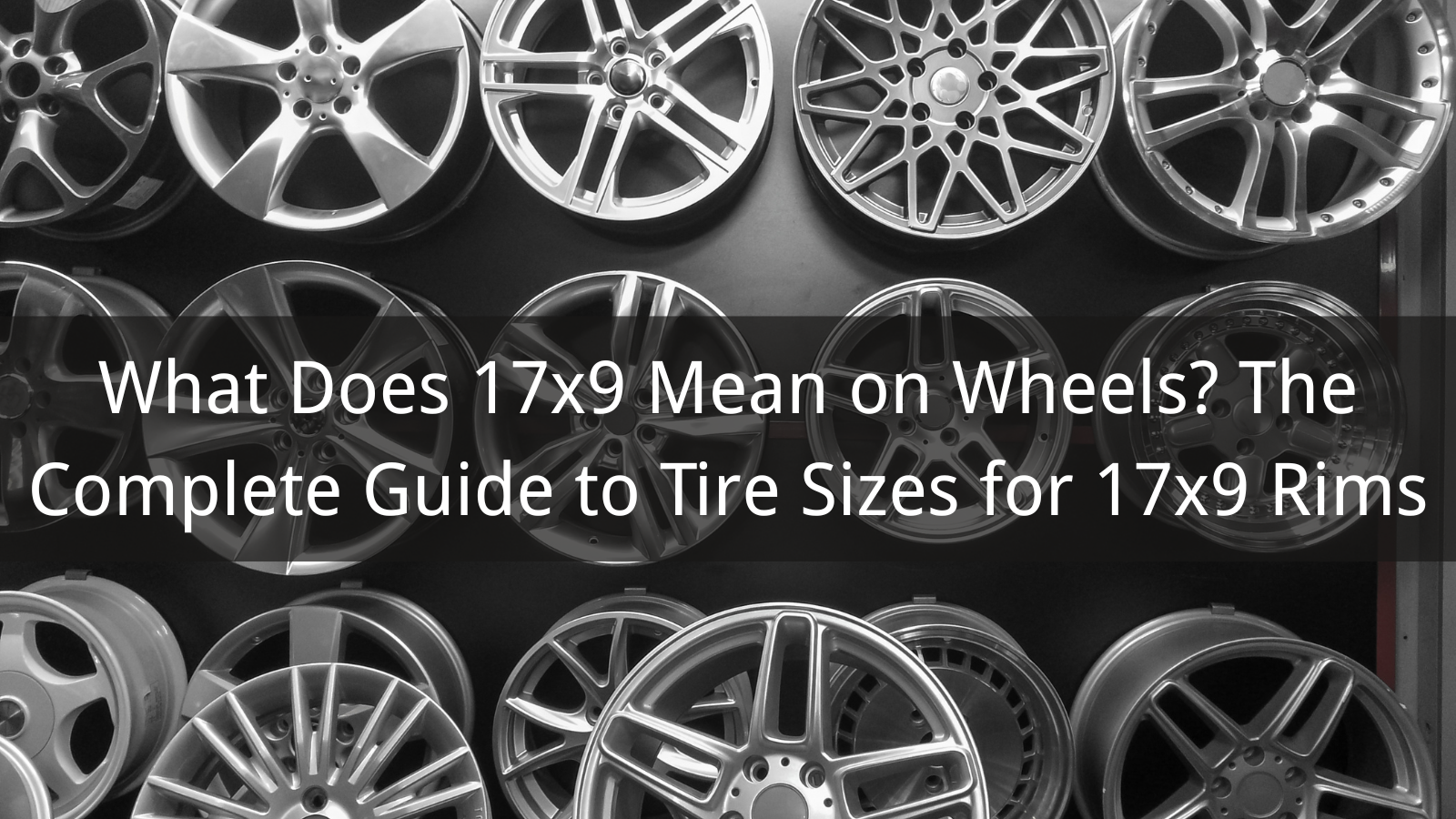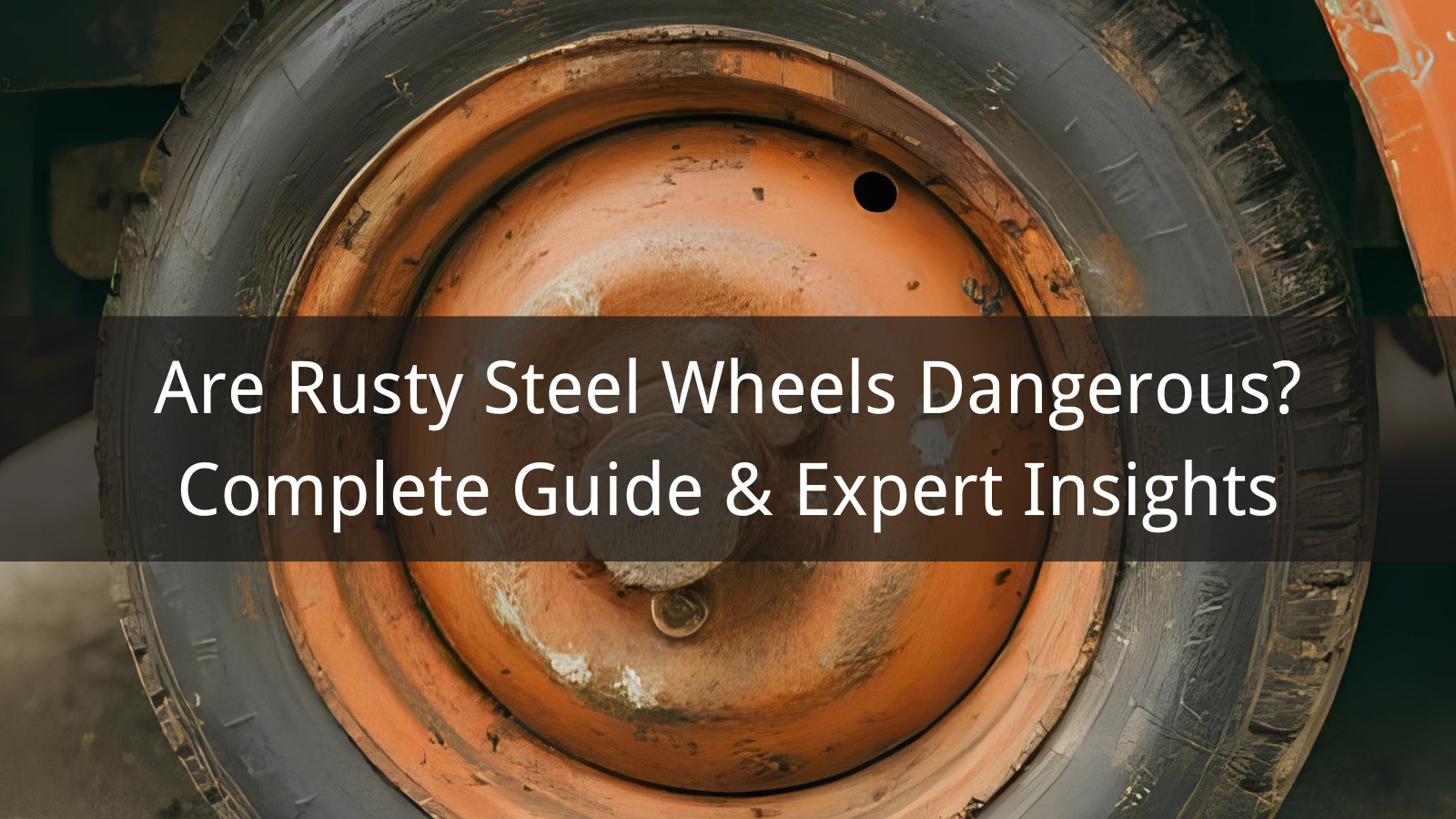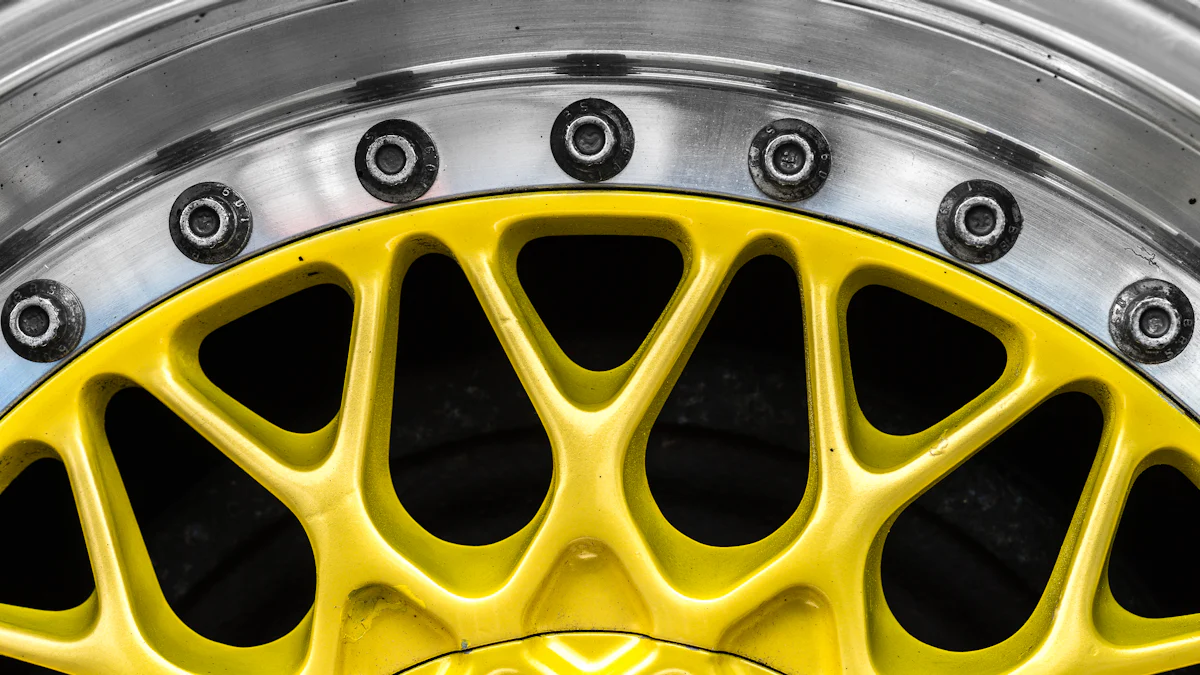
Taking care of your 17×7.5 wheel is essential for keeping your vehicle safe and performing at its best. Regular maintenance ensures your wheels stay durable, reducing the risk of unexpected damage. Proper care also saves you money by preventing costly repairs down the road. By dedicating a little time to cleaning, inspecting, and maintaining your wheels, you can enjoy a smoother ride and better handling. Whether you’re a seasoned car enthusiast or just starting out, these practical tips will help you keep your wheels in top shape.
Key Takeaways
- Regularly clean your 17×7.5 wheels every two weeks to prevent dirt and brake dust buildup, which can lead to corrosion.
- Inspect your wheels frequently for scratches, dents, and cracks to catch potential issues early and avoid costly repairs.
- Rotate your tires every 5,000 to 7,500 miles to ensure even wear and extend the lifespan of your wheels.
- Apply protective coatings, such as ceramic or wax-based sealants, to shield your wheels from moisture and contaminants.
- Seek professional maintenance for significant damage or seasonal care to ensure your wheels remain in optimal condition.
- Adapt your maintenance routine to seasonal changes, rinsing wheels frequently in winter to remove road salt and prevent rust.
- Use a touch-up paint pen for quick fixes on minor scratches to maintain the appearance and integrity of your wheels.
Understanding 17×7.5 Wheels and Their Maintenance Needs
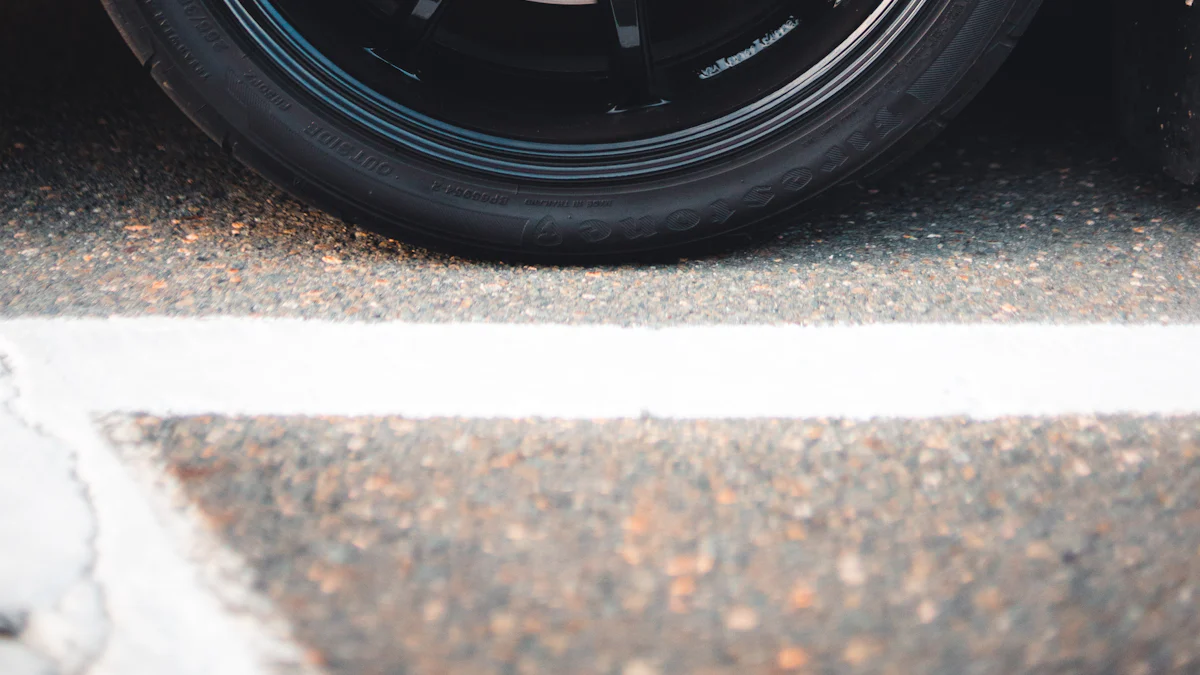
When it comes to maintaining your vehicle, understanding the unique characteristics of your wheels is a great starting point. The 17×7.5 wheel is a popular choice for many car enthusiasts due to its balance of performance, durability, and style. Let’s dive into what makes these wheels special and why proper maintenance is crucial.
Unique Features of 17×7.5 Wheels
The 17×7.5 wheel stands out for its versatility and compatibility with a wide range of vehicles. Its dimensions—17 inches in diameter and 7.5 inches in width—offer a perfect balance between aesthetics and functionality. These wheels are often paired with tires that provide excellent grip and stability, making them ideal for both daily driving and performance-focused applications.
One notable feature of these wheels is their ability to accommodate different offsets. For example, some models, like the *Method Race Wheels 703 Matte Black 17×7.5″*, come with a 50mm offset, which enhances handling and cornering. This makes them a favorite among drivers who prioritize precision and control. Additionally, the 17×7.5 wheel is available in various materials, including steel and alloy. Steel wheels, such as the 17×7.5 Steel Wheels, are known for their durability and resistance to damage, while alloy wheels offer a lighter weight for improved fuel efficiency and performance.
These wheels also strike a balance between size and weight. Compared to larger options like 18×7.5 wheels, the 17×7.5 size provides better ride quality and reduced strain on suspension components. This makes them a practical choice for those who want a smooth driving experience without compromising on style.
Why Maintenance is Essential for 17×7.5 Wheels
Proper maintenance of your 17×7.5 wheel is not just about keeping them looking good; it’s about ensuring safety and performance. Regular care helps prevent issues like uneven tire wear, corrosion, and structural damage, all of which can affect your driving experience.
Cleaning your wheels regularly is one of the simplest yet most effective ways to maintain them. Dirt, brake dust, and road grime can accumulate over time, leading to corrosion and a dull appearance. Using a non-abrasive cleaner and a soft brush can help you preserve the finish and integrity of your wheels. Avoid harsh chemicals, as they can damage the protective coating.
Inspections are equally important. Checking for scratches, dents, or cracks can help you catch problems early before they worsen. For instance, a small dent might seem insignificant, but it can compromise the wheel’s structural integrity over time. If you notice any damage, addressing it promptly can save you from costly repairs or replacements.
Tire rotation and alignment are also key to extending the lifespan of your wheels. Rotating your tires every 5,000 to 7,500 miles ensures even wear, while proper alignment prevents unnecessary stress on the wheels. This not only enhances the longevity of your 17×7.5 wheel but also improves your vehicle’s overall performance and fuel efficiency.
By understanding the unique features of your wheels and committing to regular maintenance, you can enjoy a safer, smoother, and more enjoyable driving experience.
Regular Maintenance Tips for 17×7.5 Wheels
Keeping your 17×7.5 wheels in excellent condition doesn’t have to be complicated. With a few simple steps, you can ensure they stay durable, safe, and visually appealing. Let’s explore the essential maintenance practices you should follow.
Cleaning Your 17×7.5 Wheels
Regular cleaning is one of the easiest ways to maintain your wheels. Dirt, brake dust, and road grime can build up quickly, dulling the finish and potentially causing corrosion. To clean your 17×7.5 wheels effectively:
- Use a non-abrasive rim cleaner specifically designed for wheels. This prevents damage to the protective coating.
- Grab a soft-bristled brush to scrub away stubborn grime without scratching the surface.
- Rinse thoroughly with water to remove all residue, leaving the wheels spotless.
Avoid harsh chemicals or abrasive materials. These can strip the finish and weaken the wheel’s structure over time. Cleaning your wheels every two weeks or after driving through muddy or salty conditions will keep them looking sharp and performing well.
Pro Tip: If your wheels are steel, consider applying a light layer of wax after cleaning. This adds an extra layer of protection against rust and corrosion.
Inspecting for Damage and Wear
Frequent inspections are crucial for catching potential issues early. Damaged wheels can compromise your safety and lead to costly repairs if left unchecked. Here’s what to look for:
- Scratches and scuffs: These may seem minor but can expose the wheel to moisture, increasing the risk of corrosion.
- Dents or cracks: Even small dents can weaken the wheel’s structural integrity. Cracks, no matter how tiny, should be addressed immediately.
- Corrosion spots: Rust or discoloration often indicates the beginning stages of corrosion. Treat these areas promptly to prevent further damage.
Run your hand along the wheel’s surface to feel for irregularities. If you notice any significant damage, consult a professional for repairs. Regular inspections, especially after hitting potholes or curbs, can save you from unexpected problems down the road.
Tire Rotation and Alignment for Longevity
Tire rotation and alignment play a vital role in extending the lifespan of your 17×7.5 wheels. Uneven tire wear not only affects performance but also puts unnecessary stress on the wheels. Follow these tips:
- Rotate your tires every 5,000 to 7,500 miles. This ensures even wear across all four tires, improving their longevity and maintaining balanced handling.
- Check your wheel alignment regularly. Misaligned wheels can cause uneven wear and reduce fuel efficiency. Proper alignment keeps your vehicle stable and enhances driving comfort.
- Monitor tire pressure. Overinflated or underinflated tires can strain the wheels, leading to premature wear.
Using wider tires, such as 225/45 on your 17×7.5 wheels, can also help distribute weight more evenly. This reduces wear and improves overall performance. Always follow your vehicle manufacturer’s recommendations for tire size and pressure.
By incorporating these maintenance practices into your routine, you’ll not only extend the life of your 17×7.5 wheels but also enjoy a smoother and safer driving experience.
Addressing Common Issues with 17×7.5 Wheels
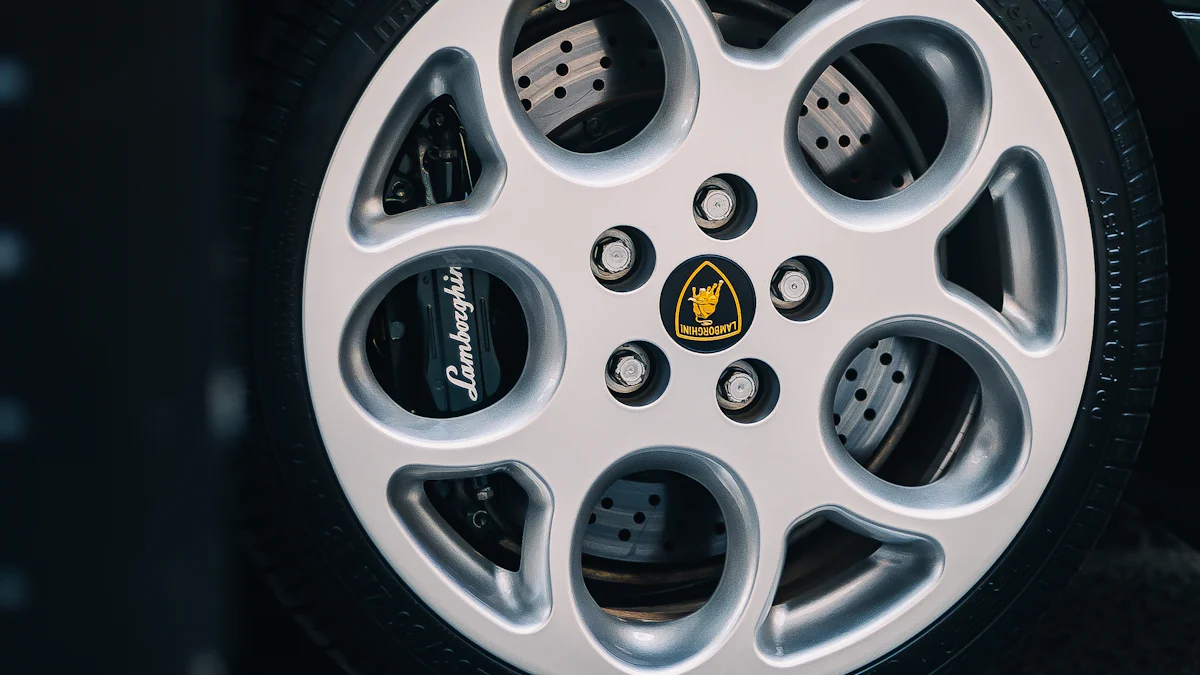
Even with regular maintenance, your 17×7.5 wheels may encounter common issues over time. Knowing how to address these problems can save you money and keep your wheels in excellent condition. Let’s explore practical solutions for scratches, dents, and corrosion.
Repairing Scratches and Scuffs
Scratches and scuffs are inevitable, especially if you frequently drive on rough roads or park near curbs. These blemishes may seem minor, but they can expose your wheels to moisture, leading to corrosion. Here’s how you can fix them:
- Clean the affected area: Use a mild wheel cleaner and a soft cloth to remove dirt and debris. This ensures you’re working on a clean surface.
- Sand the scratch: Grab fine-grit sandpaper (around 400-600 grit) and gently sand the scratched area. Focus on smoothing the edges of the scratch to blend it with the surrounding surface.
- Apply a wheel repair kit: Many auto stores sell repair kits specifically designed for wheels. These kits often include putty or filler to cover deeper scratches. Follow the instructions on the package for the best results.
- Touch up with paint: Match the paint color of your wheels and apply it carefully over the repaired area. Use a small brush for precision. Allow the paint to dry completely before driving.
Pro Tip: Keep a wheel touch-up paint pen in your car. It’s a quick and easy way to address minor scratches on the go.
Handling Dents and Cracks
Dents and cracks can compromise the structural integrity of your wheels, making them unsafe to use. These issues often occur after hitting potholes, curbs, or other obstacles. Addressing them promptly is crucial for your safety.
- For minor dents: You can sometimes fix small dents at home using a rubber mallet. Remove the wheel from your vehicle, place it on a flat surface, and gently tap the dent from the inside. Avoid using excessive force, as this could worsen the damage.
- For cracks or severe dents: Cracks, no matter how small, require professional attention. Driving on a cracked wheel increases the risk of a blowout. Visit a trusted wheel repair specialist who can assess the damage and recommend the best course of action. They may weld the crack or suggest replacing the wheel if the damage is extensive.
Safety Note: Never ignore cracks in your wheels. Even a tiny crack can grow over time, leading to dangerous situations on the road.
Preventing and Treating Corrosion
Corrosion is a common enemy of steel wheels, including 17×7.5 models. It weakens the wheel’s structure and diminishes its appearance. Preventing and treating corrosion should be a priority in your maintenance routine.
Preventing corrosion:
- Clean your wheels regularly to remove dirt, salt, and brake dust. These substances accelerate rust formation.
- Apply a protective coating or wax after cleaning. This creates a barrier against moisture and contaminants.
- Avoid parking in damp or salty environments for extended periods. If you live in an area with harsh winters, rinse your wheels frequently to remove road salt.
Treating corrosion:
- Remove rust spots: Use a wire brush or sandpaper to scrub away rust. Be thorough but gentle to avoid damaging the wheel.
- Apply a rust converter: This chemical transforms rust into a stable compound, preventing it from spreading. Follow the product instructions for proper application.
- Repaint the wheel: After treating the rust, repaint the affected area to restore its appearance and add a layer of protection.
Quick Tip: Consider investing in wheel covers during winter months. They shield your wheels from snow, salt, and debris, reducing the risk of corrosion.
By addressing these common issues promptly, you can extend the life of your 17×7.5 wheels and maintain their performance and appearance. Regular care and timely repairs ensure your wheels stay safe and reliable for every journey.
Advanced Strategies to Extend the Lifespan of 17×7.5 Wheels
Taking your wheel maintenance to the next level can significantly extend the life of your 17×7.5 wheels. By incorporating advanced strategies, you’ll not only protect your investment but also ensure your wheels perform at their best for years to come. Let’s explore these techniques.
Applying Protective Coatings
Protective coatings act as a shield for your wheels, guarding them against dirt, moisture, and corrosive elements. Applying these coatings is a straightforward process that delivers long-term benefits.
- Types of Coatings: Ceramic coatings and wax-based sealants are popular choices. Ceramic coatings provide a durable, hydrophobic layer that repels water and grime. Wax-based sealants, while less durable, offer an affordable and easy-to-apply option.
- How to Apply:
- Clean your wheels thoroughly to remove any dirt or grease.
- Dry the surface completely before applying the coating.
- Use a microfiber cloth or applicator pad to spread the coating evenly.
- Allow the coating to cure as per the manufacturer’s instructions.
Pro Tip: Reapply the coating every few months to maintain its effectiveness. For steel wheels, this extra layer of protection can prevent rust and corrosion, especially in humid or salty environments.
Protective coatings not only enhance the appearance of your wheels but also reduce the effort needed for cleaning. They create a barrier that keeps contaminants from sticking, making maintenance a breeze.
Leveraging Professional Maintenance Services
Sometimes, professional expertise can make all the difference in maintaining your wheels. Skilled technicians have the tools and knowledge to address issues that might be challenging to handle on your own.
Benefits of Professional Services:
- Technicians can perform detailed inspections to identify hidden damage.
- They use specialized equipment to repair dents, cracks, or scratches with precision.
- Professionals can apply high-quality coatings or treatments that last longer than DIY options.
When to Seek Help:
- If you notice deep scratches, significant dents, or cracks.
- When your wheels require balancing or alignment adjustments.
- For seasonal maintenance, such as preparing your wheels for winter or summer conditions.
Quick Tip: Choose a service provider with experience in handling 17×7.5 wheels. Their familiarity with this specific size ensures better results and tailored care.
Investing in professional maintenance not only saves you time but also ensures your wheels remain in top condition. It’s a smart move for anyone looking to maximize the lifespan of their 17×7.5 wheels.
Seasonal Care for 17×7.5 Wheels
Seasonal changes can take a toll on your wheels, especially if you live in areas with extreme weather. Adapting your maintenance routine to the seasons helps protect your wheels from damage caused by temperature fluctuations, road salt, and other environmental factors.
Winter Care:
- Rinse your wheels frequently to remove road salt and prevent corrosion.
- Apply a protective coating before winter begins to create a barrier against moisture and grime.
- Consider using wheel covers to shield your wheels from snow and ice.
Summer Care:
- Check tire pressure regularly, as heat can cause it to fluctuate.
- Inspect your wheels for signs of wear or damage after long road trips.
- Clean your wheels more often to remove dust and debris from dry roads.
All-Season Tips:
- Store your wheels properly when switching between summer and winter tires. Keep them in a cool, dry place to prevent rust or warping.
- Rotate your tires at the start of each season to ensure even wear.
Pro Tip: If you use alloy wheels, pay extra attention during winter months. While they’re lightweight and stylish, they’re more prone to corrosion from road salt compared to steel wheels.
By tailoring your maintenance routine to the seasons, you’ll protect your 17×7.5 wheels from weather-related damage. This proactive approach ensures they stay durable and reliable, no matter the conditions.
Incorporating these advanced strategies into your wheel care routine will help you get the most out of your 17×7.5 wheels. Whether it’s applying protective coatings, seeking professional services, or adapting to seasonal changes, these steps will keep your wheels rolling smoothly for years to come.
FAQs
When it comes to maintaining and understanding your 17×7.5 wheels, you might have a few questions. Here are some common ones answered to help you make informed decisions.
1. What are the differences between 17×7.5 and 18×7.5 wheels?
The main difference lies in the size and how it affects your driving experience. A 17×7.5 wheel provides a slightly better ride quality because of the larger sidewall on the tire. This extra cushioning protects the rim and absorbs more impact from bumps or potholes. On the other hand, an 18×7.5 wheel offers marginally better cornering performance due to the shorter sidewall, which enhances stability during sharp turns. However, the improvement in cornering is so subtle that most drivers may not notice it.
If comfort and rim protection matter more to you, stick with 17×7.5 wheels. For a sportier feel, you might consider 18×7.5 wheels.
2. Why is tire rim care important?
Taking care of your rims isn’t just about keeping them looking good—it’s essential for their longevity and performance. Regular cleaning removes dirt, brake dust, and grime that can lead to corrosion. Using a non-abrasive rim cleaner and a soft brush ensures you don’t damage the protective coating. Tire rotation every 6,000 to 8,000 miles also helps maintain even tread wear, reducing uneven stress on the rims.
Pro Tip: Clean your rims every two weeks or after driving through harsh conditions like mud or salty roads. This simple habit can prevent long-term damage.
3. Can 17×7.5 wheels work well with a +42mm offset?
While a +42mm offset can work, a 35mm offset is often more suitable for 7.5-inch-wide wheels. A lower offset like 35mm pushes the wheel outward slightly, improving the stance and providing better clearance for brakes and suspension components. This adjustment can enhance handling and give your vehicle a more aggressive look.
Always check your vehicle’s specifications before choosing an offset. A professional can help you determine the best fit for your car.
4. What tire size works best for 17×7.5 wheels?
A popular choice for 17×7.5 wheels is the 225/45/17 tire size. This size strikes a balance between performance and comfort. The 225mm width provides excellent grip, while the 45% aspect ratio ensures a comfortable ride without compromising handling. It’s a versatile option that works well for both daily driving and spirited performance.
Make sure to follow your vehicle manufacturer’s recommendations for tire sizes to ensure safety and optimal performance.
5. How can I extend the life of my 17×7.5 wheels?
Here are a few quick tips to maximize the lifespan of your wheels:
- Clean them regularly using a non-abrasive cleaner and soft brush.
- Rotate your tires every 5,000 to 7,500 miles to ensure even wear.
- Check for damage like scratches, dents, or corrosion and address issues promptly.
- Apply protective coatings to shield against dirt, moisture, and rust.
- Monitor tire pressure to avoid unnecessary stress on the rims.
Key Takeaway: Consistent care and attention go a long way in keeping your wheels durable and reliable.
These FAQs cover some of the most common concerns about 17×7.5 wheels. If you have additional questions, don’t hesitate to consult a professional or refer to your vehicle’s manual for specific guidance. Taking the time to understand your wheels ensures a safer and smoother driving experience.
Taking care of your 17×7.5 wheel is more than just a routine task—it’s a way to ensure your vehicle performs at its best while keeping you safe on the road. Regular cleaning, inspections, and protective measures not only maintain the wheel’s durability but also enhance its appearance and functionality. Consistent care leads to smoother rides, better handling, and fewer costly repairs. By adopting these practices, you’ll enjoy a reliable driving experience. When in doubt, don’t hesitate to seek professional assistance to keep your wheels in top condition.
FAQ
1. How often should you clean your 17×7.5 wheels?
You should clean your 17×7.5 wheels every two weeks or after driving through harsh conditions like mud, snow, or salty roads. Regular cleaning prevents dirt, brake dust, and grime from building up, which can lead to corrosion and dull the wheel’s finish. Use a non-abrasive wheel cleaner and a soft-bristled brush for the best results.
Tip: If you live in an area with harsh winters, rinse your wheels frequently during the season to remove road salt and prevent rust.
2. What is the best way to inspect your wheels for damage?
Inspect your wheels visually and physically at least once a month. Look for scratches, dents, cracks, or signs of corrosion. Run your hand along the wheel’s surface to feel for irregularities. Pay close attention after hitting potholes or curbs, as these can cause hidden damage. If you notice any issues, address them immediately to avoid further complications.
Pro Tip: Use a flashlight to check hard-to-see areas, especially around the inner rim and lug holes.
3. Can you repair scratches on 17×7.5 wheels yourself?
Yes, you can repair minor scratches on your wheels at home. Start by cleaning the affected area thoroughly. Use fine-grit sandpaper (400-600 grit) to smooth out the scratch. Apply a wheel repair kit or filler to deeper scratches, then touch up the area with matching paint. Allow the paint to dry completely before driving.
Quick Tip: Keep a touch-up paint pen in your car for quick fixes on minor scratches.
4. How often should you rotate your tires on 17×7.5 wheels?
Rotate your tires every 5,000 to 7,500 miles to ensure even wear. Regular tire rotation helps maintain balanced handling and extends the lifespan of both your tires and wheels. Follow the rotation pattern recommended in your vehicle’s manual for the best results.
Did You Know? Uneven tire wear can put unnecessary stress on your wheels, leading to premature damage.
5. What tire size works best with 17×7.5 wheels?
The 225/45/17 tire size is a popular choice for 17×7.5 wheels. This size offers a great balance between grip, comfort, and performance. It provides excellent stability for daily driving and spirited performance. Always check your vehicle manufacturer’s recommendations to ensure compatibility.
Reminder: Using the wrong tire size can affect your vehicle’s handling and safety.
6. How can you prevent corrosion on steel 17×7.5 wheels?
To prevent corrosion, clean your wheels regularly to remove dirt, brake dust, and road salt. Apply a protective coating or wax after cleaning to create a barrier against moisture. Avoid parking in damp or salty environments for extended periods. During winter, consider using wheel covers to shield your wheels from snow and ice.
Pro Tip: Ceramic coatings provide long-lasting protection and make cleaning easier.
7. Are professional maintenance services worth it for 17×7.5 wheels?
Yes, professional maintenance services can be highly beneficial. Technicians can perform detailed inspections, repair dents or cracks, and apply high-quality protective coatings. They also have specialized tools to balance and align your wheels accurately. Professional care ensures your wheels stay in top condition and perform optimally.
When to Seek Help: If you notice deep scratches, significant dents, or cracks, consult a professional immediately.
8. What is the difference between 17×7.5 and 18×7.5 wheels?
The main difference lies in size and performance. A 17×7.5 wheel offers better ride quality due to the larger sidewall on the tire, which absorbs more impact from bumps and potholes. An 18×7.5 wheel provides slightly better cornering performance because of the shorter sidewall, which enhances stability during sharp turns. Choose based on your driving needs and preferences.
Key Insight: For daily driving comfort, 17×7.5 wheels are a better choice. For a sportier feel, consider 18×7.5 wheels.
9. How do you handle dents or cracks in your wheels?
For minor dents, use a rubber mallet to gently tap the dent from the inside of the wheel. Place the wheel on a flat surface to avoid further damage. For cracks or severe dents, seek professional help immediately. Driving on a cracked wheel increases the risk of a blowout and compromises your safety.
Safety Note: Never ignore cracks, no matter how small. They can grow over time and lead to dangerous situations.
10. What are the benefits of applying protective coatings to your wheels?
Protective coatings shield your wheels from dirt, moisture, and corrosive elements. They make cleaning easier and help maintain the wheel’s finish. Ceramic coatings, in particular, provide a durable, hydrophobic layer that repels water and grime. Wax-based sealants are another option for added protection.
Pro Tip: Reapply protective coatings every few months to keep your wheels looking and performing their best.
These FAQs cover essential topics to help you maintain and care for your 17×7.5 wheels effectively.
- Posted In:General
